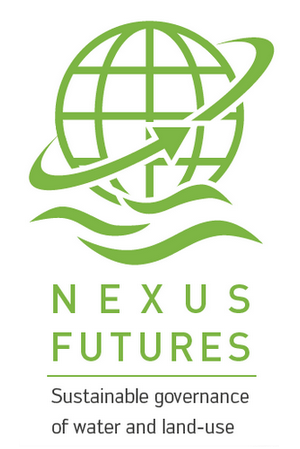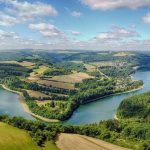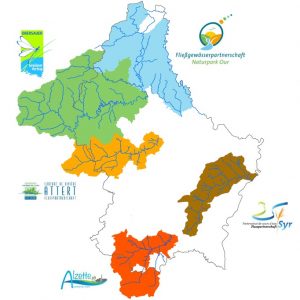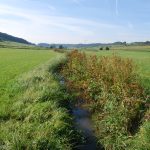River basins: The work strand NEXUS RIVER BASINS work strand aims to understand and address challenges of water, soil and land use in local contexts..
Cooperation with local river partnerships: We work closely with two of the six river partnerships in Luxembourg. In the east of Luxembourg we cooperate with the river partnership Syr, in the north with the “water contract Upper Sûre”. These river partnerships coordinate and facilitate water conservation measures in their communities. Their role also involves raising awareness and establishing cooperation between public and private actors and citizens who are engaged in water and land use.
Situating the research: The two river basins are very different. The Syr in the east has a relatively dense population and high traffic volumes due to its proximity to Luxembourg city. On the other hand, the Upper Sûre region is sparsely populated and features the Upper Sûre dam, which is the most important national drinking water reservoir for the growing population of Luxembourg. At the same time, many agricultural businesses operate around the reservoir, hydroelectric power is produced, and the Upper Sûre Nature Park is a popular recreation and tourist region. Most of the municipalities in the Syr catchment are supplied with drinking water from the reservoir. However, many municipalities endeavor to use their own sources for drinking water.
The river partnerships and their members share a number of common goals and challenges such as protecting water quality in surface water, ground water and sources of drinking and wastewater treatment and urban development, as well as water consumption and pollution through agriculture, economic activity and households.
Research and project activities: We use a systems approach to explore how sustainable development challenges impact on the river basins. We are also interested in how these challenges have evolved historically and how they are perceived and addressed by multiple stakeholders. For this purpose, we have conducted interviews and organised workshops that have brought together participants from diverse organisations: river partnerships, municipalities, intermunicipal organizations (“syndicats”), agriculture and businesses, national ministries and administrations, environmental and other civil society organizations.
On this basis, action fields and recommendations have been developed that aim to encourage actors to actively engage in transformative change.
Kristina Hondrila leads the NEXUS RIVER BASIN work strand. Her PhD thesis analyses governance processes in the period 2000-2019 that have aimed to improve the condition of rivers and lakes. The thesis offers insights and recommendations on how social learning and actionable knowledge can be fostered to improve the cooperation between actors in water management, environmental protection and agriculture and foster transformations in organizations and professional practices towards sustainability.




